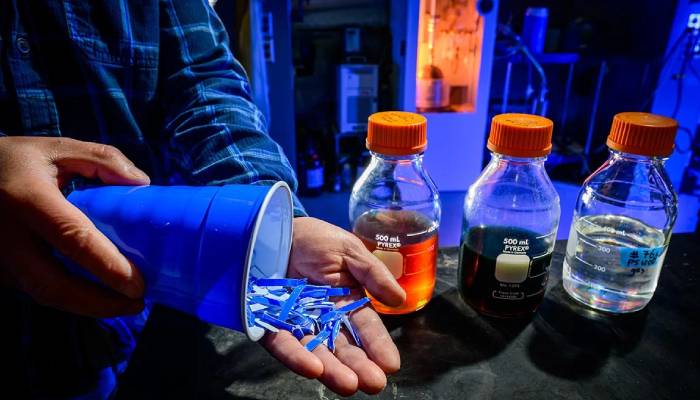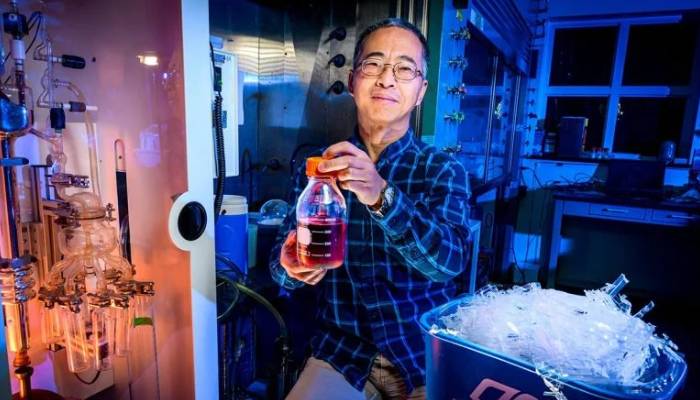
Researchers have found a new and innovative way to recycle waste into environmentally friendly fuel.
As per SciTechDaily, researchers utilize plastic waste to make ethylbenzene, an important chemical used in making sustainable aviation fuels, by recycling waste polystyrene (a type of plastic commonly found in items like packaging and disposable utensils).
The study published recently in the journal ACS Sustainable Chemistry and Engineering, revealed that the new innovation has the potential to significantly lower the aviation industry’s environmental impact by reducing its dependence on traditional fossil fuels.
It offers a cleaner and more sustainable alternative for air travel, cutting carbon emissions by 50% to 60%.
Fuels made from non-petroleum sources, like waste fats, oil and greases often lack enough aromatic hydrocarbons, which are crucial for fuel performance.
Aromatic hydrocarbons help lubricate moving parts and ensure seals remain swollen to prevent leaks during normal use.

The team selected ethylbenzene for development because it produces less soot when burned compared to other highly aromatic compounds.
Whereas, they choose to use polystyrene as the starting material because it is rich in hydrocarbons and is widely available as waste.
For this process, thermal pyrolysis was used to break down the polystyrene into a liquid that contains styrene.
Then, through hydrogenation, the liquid was converted into crude ethylbenzene.
Finally, distillation was used to purify the ethylbenzene, achieving the product 90% pure.

Hong Lu, a research scientist at the Illinois Sustainable Technology Center, said, “We produce in the U.S. about 2.5 million metric tons of polystyrene every year, and almost all of it is disposed of in landfills.
Several US government agencies have developed a plan to address the environmental impacts of aviation fuels made from fossil fuels.
The plan, called Sustainable Aviation Fuel Grand Challenge aims to produce 3 billion gallons of sustainable aviation fuel annually in the future, with a long-term goal of supplying 100% of aviation fuel needs, or 35 billion gallons per year by 2050.















